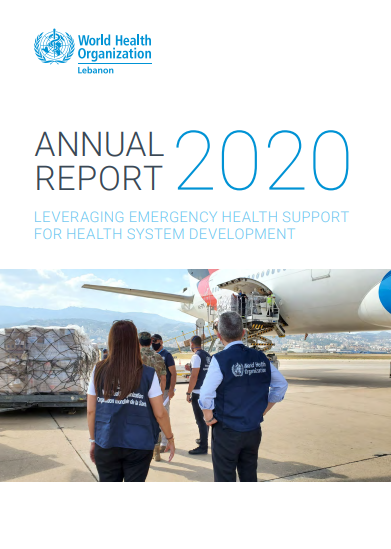 Lebanon has been struggling with the consequences of an unprecedented fiscal and economic crisis and political instability since late 2019, in addition to the protracted Syrian crisis, with an ongoing rise in humanitarian needs.
Lebanon has been struggling with the consequences of an unprecedented fiscal and economic crisis and political instability since late 2019, in addition to the protracted Syrian crisis, with an ongoing rise in humanitarian needs.
In February 2020, Lebanon reported its first coronavirus (COVID-19) case, and a subsequent surge in cases and health needs further burdened the already stretched health care system, which struggled to cope with rising demand.
The massive Beirut Port explosion that struck the city on 4 August 2020 came at a tough time for Lebanon, while it was not only trying to control the spread of COVID-19 but also challenged with ongoing multifaceted crises, including a protracted Syrian refugee crisis and a severe and unprecedented financial and sociopolitical crisis with deleterious repercussions on the country’s economy. While the health system was already working at the limits of its capacity, the explosion further shook it, putting 500 hospital beds out of order for almost one year, and partially or completely destroying more than 50 primary health care (PHC) centres. The city’s infrastructure, particularly water and sanitation and housing, were severely affected. The explosion left thousands injured and hundreds of thousands displaced, with the already overlapping emergencies pushing the population into poverty and further impairing their capacity to cope, leaving many vulnerable Lebanese and refugees on the brink of being able to secure a livelihood.
Despite the general instability, the country was able to sustain continued access for vulnerable populations to PHC and maintain low levels of maternal and child mortality in addition to a polio-free status. Interventions such as strengthening the capacities of public health systems were accelerated. WHO support focused on filling critical gaps in the complex crisis response and bridging it to the development of the health system capacity and infrastructure, in line with the UN humanitarian-development nexus.
We thank our donors for their generous support and contributions, the Ministry of Public Health for its strong commitment, and all health partners for their involvement and sustained solidarity. Through timely response and work around the clock, WHO was able to support the health sector against all odds. Lebanon will remain irrepressible, setting an example of a resilient community and a health system that continues to build back better in the face of all hardships. We should ensure sustained support and solidarity to effectively deliver health care services to everyone in both the short and longer term.
Related link
Annual report 2020: leveraging emergency health support for health system development








